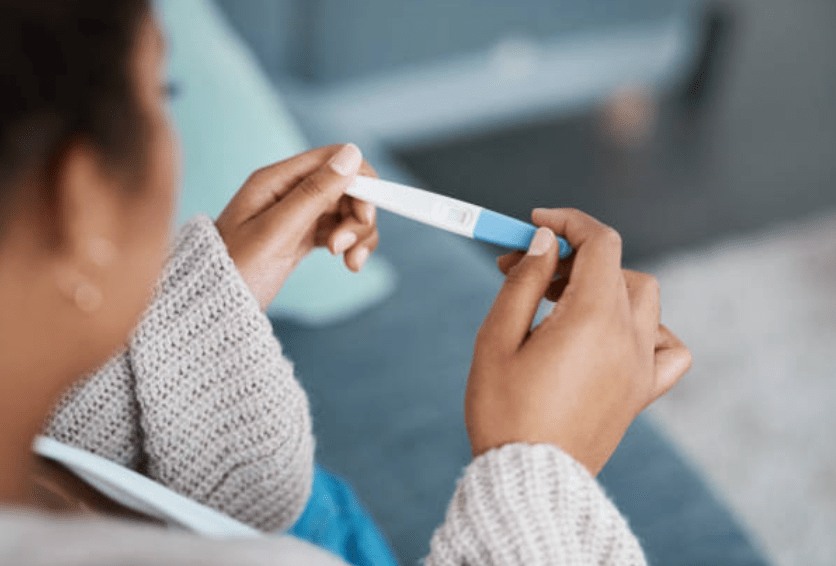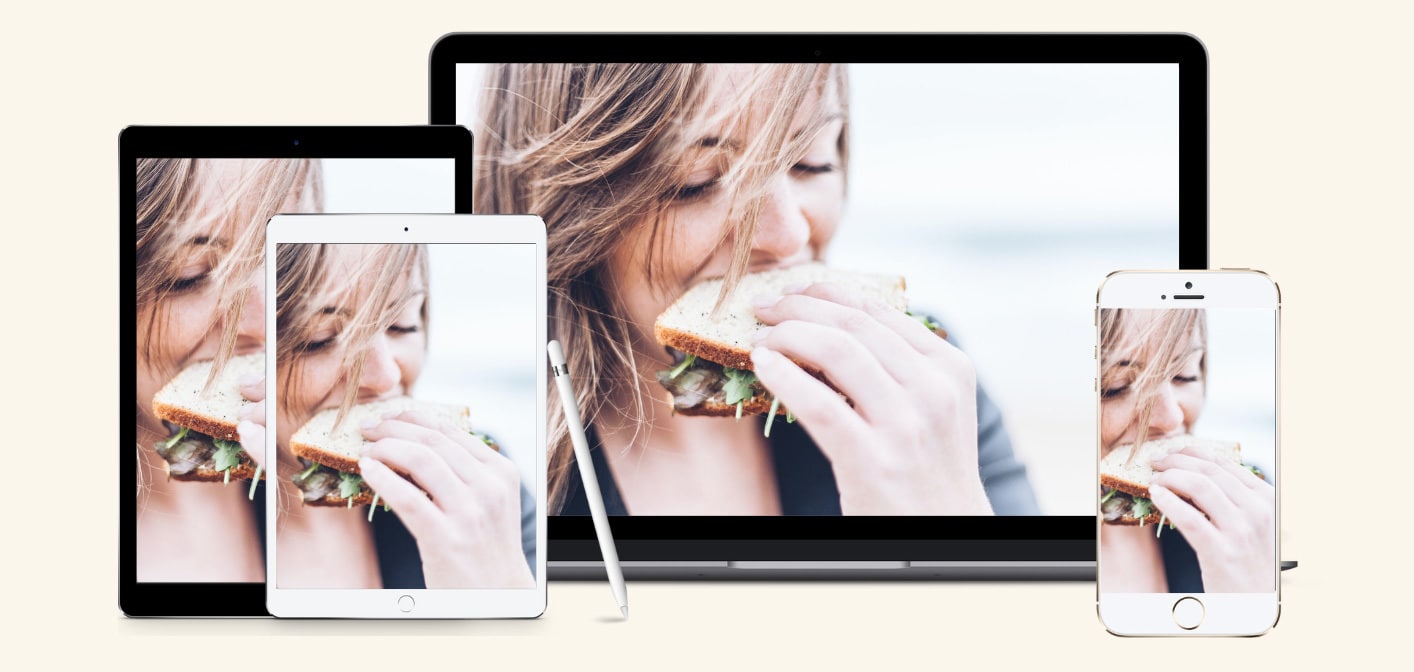What to do if you’re told to lose weight to get pregnant…
If you’re in a bigger body and want to get pregnant, the chances are you’ve faced some problems. Have you been told, “you need to lose weight to get pregnant?” Were you dismissed in your request for help from a healthcare professional due to weight? This could be despite multiple attempts of weight loss which have not been sustained. Or a history of disordered eating that stemmed from the pursuit of weight loss. If these are your experiences, please know they are in keeping with the scientific research. This research tells us long-term weight loss is not sustainable and may lead to poorer health.
Is it necessary to lose weight to get pregnant?
Despite much of the information you may have received from the diet industry, teachers, loved ones, and professionals, weight is not something we actually have a lot of control over. All of the evidence we have on weight loss suggests that for the majority of people, manipulating our body’s weight shape or size is very difficult. Weight loss is possible, in most people, any weight lost will usually be regained within 2-5 years. Around 30-60% of people regain weight above baseline.
Whilst this information might be completely new, and different to what you’ve heard before, this can be explained by the set point theory. This theory has shown that our bodies have an internal thermostat or ‘pre-programmed’ weight that bodies naturally want to be at when they are taken care of (there is enough food available without restriction). This might not be the weight that society deems “should” be okay as per the Body Mass Index (BMI). When the body is withheld from food or restricted, the body works really hard to return to its ‘set point’. It does this by adjusting the metabolism to be more or less efficient with the energy it receives from food. It’s not something that can be ‘hacked’ or controlled, and it’s the body’s way of protecting itself.
Can you try to lose weight while trying to get pregnant?
Diets are essentially a way to get your body into a calorie deficit. Whether it be counting calories, striving to be “healthier”, or juice detox. If it’s about weight loss and getting into an energy deficit, it’s a diet. Diets act by tricking the body into thinking it’s in a famine. The body’s natural response is to go into survival mode, conserving energy and increasing hunger signals to make us seek out food. This is where food obsession can kick in, and body systems that are not essential can be switched off. Including the reproductive system. As soon as the diet stops, the body is relieved by food being available again and makes the most of this by stocking up on fat stores just in case there is another famine. This is why it becomes more and more difficult to lose weight with each diet attempt, and why we can end up yo-yo dieting.
So recommending dieting, and weight loss in the context of fertility treatment can be harmful. Fat people are told to do something that can actually promote infertility in the name of aesthetics and beauty standards! Unfortunately, many healthcare professionals are not aware of this, so you’re well within your rights to express concern at these recommendations, and to ask for weight inclusive care.
We, therefore, encourage rejecting this recommendation for weight loss in the name of fertility. This is to ensure the body is well nourished to geared up for a healthy conception.
If your doctor tells you you need to lose weight, there are a number of things you can do, outlined in the rest of this article.
Can losing weight improve egg quality?
If you search the internet, you’re likely to find an array of lotions and potions and interventions that claim to improve egg or sperm quality. Whilst there are things that can be done to look after your reproductive health, these do not need to involve rigid routines and restrictive eating. These can add further stress and expense. Rather than jumping ahead, it might be worth asking your doctor about testing an investigation that might be available to you. These can include:
- Blood tests to check hormone levels related to your menstrual cycle and ovulation
- An examination to see if there are any physical obstructions like fallopian tube blockages or cysts on the ovaries.
- Semen testing measures things like quality, quantity and motility.
In terms of nutrition, one of the most important factors is eating enough food, and regularly keeping hormone levels stable. There are some key supplements including folic acid. This has been linked to increased conception rates, an increased chance of ovulation higher quality oocytes and a shorter time to pregnancy. It’s found in most pre-pregnancy supplements and is recommended to be taken 2-3 months prior to conception, and during the first 12 weeks of pregnancy. 40o micrograms are the standard dose, however, it’s important to speak with your doctor to see if this is right for you. Some people require higher doses.
Steps you can take to improve health without the focus on weight…
With this in mind, many who are in bigger bodies trying to get pregnant choose to pursue a Non-Diet approach to nutrition (intuitive eating). Intuitive eating is an evidence-based practice that supports the pursuit of health without focusing on weight or body size. Importantly, does not trigger disordered eating or poor mental health.
That’s why I have invited fat positive fertility coach Nicola Salmon to the blog. Nicola is a fat-positive feminist and fertility coach. She advocates for change in how fat folks are treated on their fertility journey. Nicola supports fat folks (and others with disordered eating) who are struggling to get pregnant and find peace with their body. She helps them find their own version of health, and escape the yo-yo diet cycle.
Here, she offers her top tips on fat positive fertility and getting pregnant with a bigger body.
FREE Guide: Fat Positive Fertility Resources
Top 3 tips on what to do if you’re told you need to lose weight to get pregnant
1) Release the vice-like grip that the scales might have on you
We’ve been brought up to believe that our health is determined by the number on the scales and it’s just not true. Your weight tells me absolutely nothing about your health or your fertility. However, weighing yourself regularly brings a ton of stress and anxiety.
The idea that fat folks struggle to get pregnant is based on the assumption that being fat is unhealthy. In reality, fat folks experience higher risks because they are not given adequate healthcare. They also often get shamed and judged when they access healthcare. Furthermore, we know that there are no intentional weight-loss interventions that have any long term results. Instead, the only long term results from dieting are the likelihood of regaining any weight loss, increased risk of disordered eating and eating disorders. Therefore, you might like to explore the action steps below.
ACTION: What’s a small step that you can take to move away from the scales?
- Can you move away from weighing yourself daily, to once a week?
- Maybe you could even throw out your scales! (I smashed mine in the garden! It was very satisfying)
- Shift your focus to something else, like getting better sleep, improving your energy levels or feeling stronger.
2) Practice advocating for yourself
If the only advice you are getting from healthcare professionals is to lose weight, then it might be time to advocate for yourself. We are never taught how to advocate for ourselves, it’s a skill that we need to learn and practice.
It’s important to acknowledge that advocating is work. It takes physical and emotional energy and it’s work that you should not have to do. It’s the systems that need to change.
You deserve appropriate and respectful healthcare.
However, unfortunately systems take time to change. This means that advocating for yourself to get that treatment may be the only option right now.
Advocating includes finding healthcare professionals that will treat you. Or, communicating with your current healthcare team to demand the treatments you need.
ACTION: What small step can you take towards getting your healthcare needs met?
Ask local friends/online communities for recommendations for appropriate doctors/clinics.
Spend 15 minutes writing down what your needs are around your healthcare. This way you can identify where they are and aren’t met.
Write a letter (or asking your nutritionist/coach to write a letter for you). This can outline your needs and that you do not want to discuss weight loss/dieting at future appointments.
3) Set boundaries with friends and family
Friends and family can be a great support and get us through the hardest times in our lives. They can also say the most insensitive things when they don’t understand what we are going through. Especially when it comes to weight and fertility.
It may appear that talking about their own dieting adventures or giving you well-meaning diet advice is coming from a place of love. But impact always trumps intention and the impact of this well-meaning advice can be huge. It can trigger patterns of self-loathing, pain and shame within us. This can have a measurable negative impact on our health.
ACTION: How can we set boundaries with our close ones without alienating them?
- Can you try telling them about your needs. For example, “talking about diets and weight-loss makes me feel shame about my body. I need you to talk about your dieting/weight loss advice to someone else”
- Have a go at asking for their buy-in. For example, “did you know that there is no evidence that any form of intentional weight-loss actually works!!?! If you want to learn more I’d definitely recommend Anti-Diet by Christy Harrison”.
- Prioritise keeping yourself safe. If having conversations with others feels too difficult (and sometimes it does!), you can keep yourself safe by removing yourself from the harm. This could look like going to the toilet when your colleagues start talking about diets. Or quickly change the subject when weight loss comes. If possible, you could also avoid spending time with people who talk about dieting all the time.
In conclusion, being told you need to lose weight to get pregnant is simply not helpful for many. The biggest thing to remember is that you’re worthy of feeling safe and having support in growing your family. It’s okay for you to want to become a parent. You are not selfish or irresponsible. I am sorry if you have been made to feel ashamed or guilty. You deserve to choose when you grow your family. And most importantly, you are worthy.
FREE Guide: Fat Positive Fertility Resources





